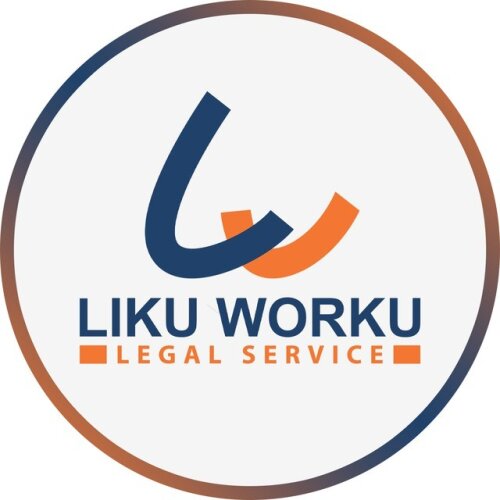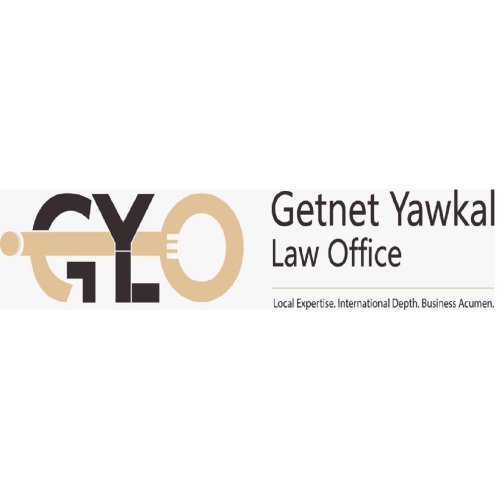Best Corporate Governance Lawyers in Ethiopia
Share your needs with us, get contacted by law firms.
Free. Takes 2 min.
Or refine your search by selecting a city:
List of the best lawyers in Ethiopia
About Corporate Governance Law in Ethiopia
Corporate governance refers to the systems, principles, and processes by which companies are directed and controlled. In Ethiopia, corporate governance has gained increasing attention as the business environment grows and diversifies. The rules governing how companies operate are set out in various Ethiopian laws and regulations, particularly in the Commercial Code and sector-specific directives. Good corporate governance is essential for ensuring transparency, accountability, and efficiency in companies of all sizes. Adherence to sound governance practices not only helps enhance investor confidence but also aligns operational behavior with legal and ethical standards in Ethiopia’s growing market economy.
Why You May Need a Lawyer
Seeking legal advice in corporate governance is crucial for businesses, shareholders, directors, and even employees. Common situations where professional legal help may be necessary include: setting up a business and drafting corporate documents, ensuring compliance with Ethiopian laws and regulations, resolving disputes among shareholders or directors, reviewing or preparing contracts, handling restructuring or mergers and acquisitions, navigating regulatory investigations, and providing general guidance on the responsibilities of directors and officers. A lawyer with expertise in corporate governance can help mitigate risks, prevent costly mistakes, and represent you in negotiations or court where necessary.
Local Laws Overview
Several legal frameworks shape corporate governance in Ethiopia. The recent Ethiopian Commercial Code, which came into effect in 2021, is the most significant governing law. This code outlines the formation, management, rights, and obligations of corporate entities, including private limited companies and share companies. The Ethiopian Investment Proclamation and directives from regulatory bodies such as the Ministry of Trade and Regional Integration and the Ethiopian Investment Commission also impact governance practices, especially for foreign investors and companies in regulated sectors.
Key aspects of local laws relevant to corporate governance include:
- The requirements for company formation and registration
- Duties and responsibilities of directors and managing officers
- Shareholder rights and protections
- Mandatory corporate governance structures, including general meetings, boards of directors, and board committees
- Disclosure and reporting obligations
- Mechanisms for dispute resolution among stakeholders
- Special regimes for banks, insurance companies, and companies listed on securities markets
Frequently Asked Questions
What is the main law regulating corporate governance in Ethiopia?
The primary law is the Ethiopian Commercial Code, which regulates the formation, management, and operation of business entities. Additional laws may apply to sectors such as banking, insurance, and investment.
What are the basic structures required for a company under Ethiopian law?
Companies are generally required to have a general meeting of shareholders, a board of directors, and a general manager. The exact structure may depend on whether the company is a share company, a private limited company, or another form of entity.
Are there specific requirements for foreign investors?
Yes, foreign investors must comply with requirements under the Investment Proclamation and receive appropriate licenses from the Ethiopian Investment Commission. There are also minimum capital requirements and certain sectoral restrictions for foreign ownership.
What are the duties of company directors in Ethiopia?
Directors have fiduciary duties to act in the best interests of the company, avoid conflicts of interest, comply with laws, and exercise care and diligence in their decision-making.
How are shareholder disputes resolved?
Disputes can be resolved internally through the company’s organs or externally via courts or arbitration, depending on the nature of the dispute and provisions in the company’s memorandum and articles of association.
Is corporate governance different for banks and insurance companies?
Yes, banks and insurance companies are subject to more stringent governance requirements set out by the National Bank of Ethiopia, including additional board committees and stricter reporting standards.
What are the reporting obligations of companies?
Companies must keep accurate records, prepare annual financial statements, and report major changes or decisions to the authorities as required by law.
Can a director also be an employee of the company?
Yes, it is permissible for a director to serve as both a board member and an employee, but any contracts or remuneration must comply with disclosure and approval requirements.
What happens if a company does not comply with governance requirements?
Failure to comply can lead to administrative penalties, civil liability for losses, or even criminal sanctions in cases of fraud or gross negligence. The company could also be subject to regulatory investigation or deregistration.
How are company records managed in Ethiopia?
The law requires companies to maintain proper books of accounts, board meeting minutes, shareholder registers, and official communications. These records must be kept at the company’s registered office and be available for inspection by relevant parties.
Additional Resources
If you need more information or assistance related to corporate governance in Ethiopia, consider reaching out to these resources:
- Ministry of Trade and Regional Integration: Authorized body for company registration and regulatory oversight
- Ethiopian Investment Commission: Guidance and support for both local and foreign investors
- National Bank of Ethiopia: Regulates governance practices in financial institutions
- Professional service providers: Accredited lawyers, auditors, and accounting firms experienced in corporate governance matters
- Chambers of Commerce and industry associations: Networking, advocacy, and informational resources on best practices
Next Steps
If you require legal assistance in corporate governance matters, consider these steps:
- Assess your needs and identify the specific challenges facing your business or investment
- Gather all relevant company documents and records
- Seek recommendations for a reputable legal professional specializing in corporate law and governance in Ethiopia
- Arrange a consultation to discuss your concerns and obtain tailored advice
- Follow through with legal, procedural, or compliance steps as advised by your lawyer
- Stay updated on changes to laws and regulations affecting your business
Having the right legal support can help you navigate Ethiopia’s evolving corporate governance landscape with confidence and compliance.
Lawzana helps you find the best lawyers and law firms in Ethiopia through a curated and pre-screened list of qualified legal professionals. Our platform offers rankings and detailed profiles of attorneys and law firms, allowing you to compare based on practice areas, including Corporate Governance, experience, and client feedback.
Each profile includes a description of the firm's areas of practice, client reviews, team members and partners, year of establishment, spoken languages, office locations, contact information, social media presence, and any published articles or resources. Most firms on our platform speak English and are experienced in both local and international legal matters.
Get a quote from top-rated law firms in Ethiopia — quickly, securely, and without unnecessary hassle.
Disclaimer:
The information provided on this page is for general informational purposes only and does not constitute legal advice. While we strive to ensure the accuracy and relevance of the content, legal information may change over time, and interpretations of the law can vary. You should always consult with a qualified legal professional for advice specific to your situation.
We disclaim all liability for actions taken or not taken based on the content of this page. If you believe any information is incorrect or outdated, please contact us, and we will review and update it where appropriate.
Browse corporate governance law firms by city in Ethiopia
Refine your search by selecting a city.

















